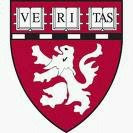
(NaturalNews)
Pressure is building on Harvard Medical School to better regulate the massive gifts and consulting fees that faculty members regularly receive from drug companies, with increasing attention being drawn to the great potential for conflict of interest in such relationships.
"Before coming here, I had no idea how much influence companies had on medical education," said first-year medical student David Tian. "And it's something that's purposely meant to be under the table, providing information under the guise of education when that information is also presented for marketing purposes."
A student movement has recently taken form at Harvard Medical School, demanding widespread reform of the school's conflict-of-interest policies. The movement was sparked by a number of high-profile scandals in which Harvard medical faculty were revealed to have concealed hundreds of thousands of dollars in pharmaceutical company gifts, sparking a Senate investigation. This was followed by the American Medical Student Association giving the school an F grade for its conflict-of-interest disclosure policies.
The University of Pennsylvania, in contrast, received an A, while Columbia, Stanford and New York Universities received Bs.
The student movement has had at least one victory so far, with the school agreeing to require all professors and lecturers to tell students of any financial ties to the drug industry. In one case, a professor was required to disclose 47 financial relationships. A full 1,600 of 8,900 teachers have reported at least one financial relationship in an area related to their teaching, research or medical practice.
Other student demands, however, have met more resistance. Harvard does not own its affiliated teaching hospitals, for example, making it harder to impose regulations on them. Meanwhile, medical school Dean Jeffrey S. Flier says that given the current economic downturn, he does not want to jeopardize one of the school's major sources of funding.
The students are not giving up, however.
"Harvard needs to live up to its name," said first-year student Kirsten Austad. "We are really being indoctrinated into a field of medicine that is becoming more and more commercialized."
Sources for this story include: www.nytimes.com.
http://www.naturalnews.com/026223.html














No comments:
Post a Comment